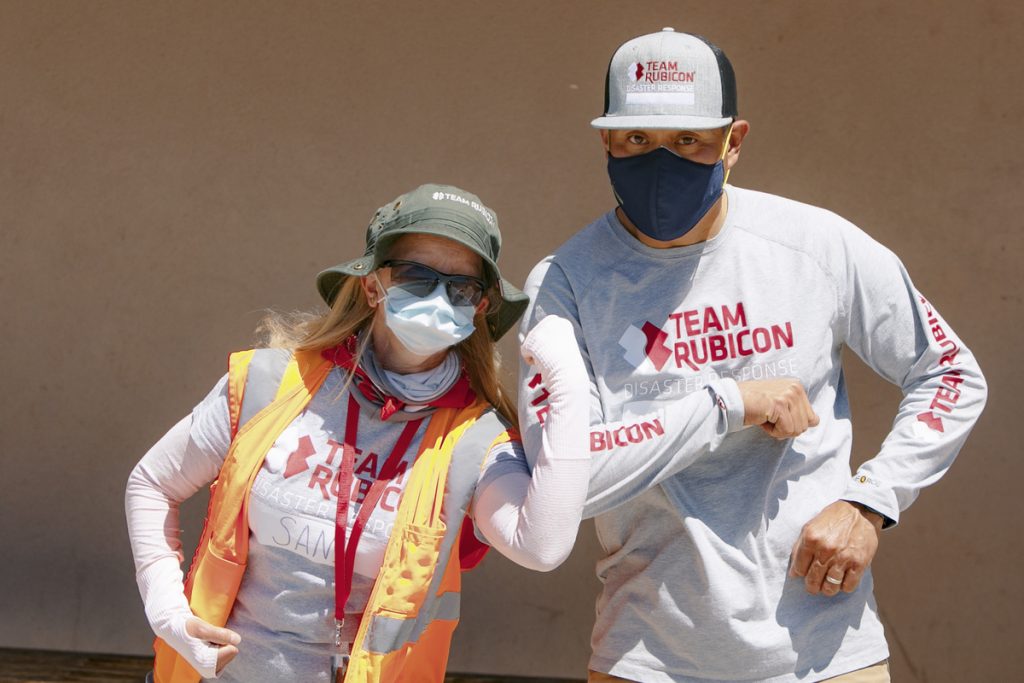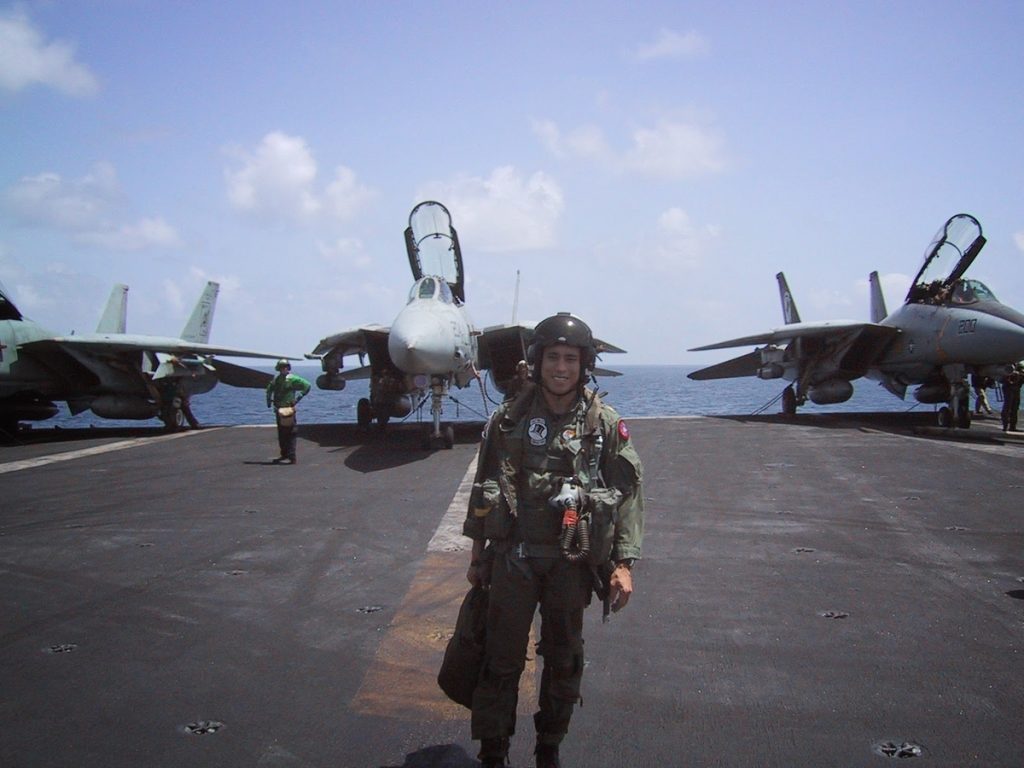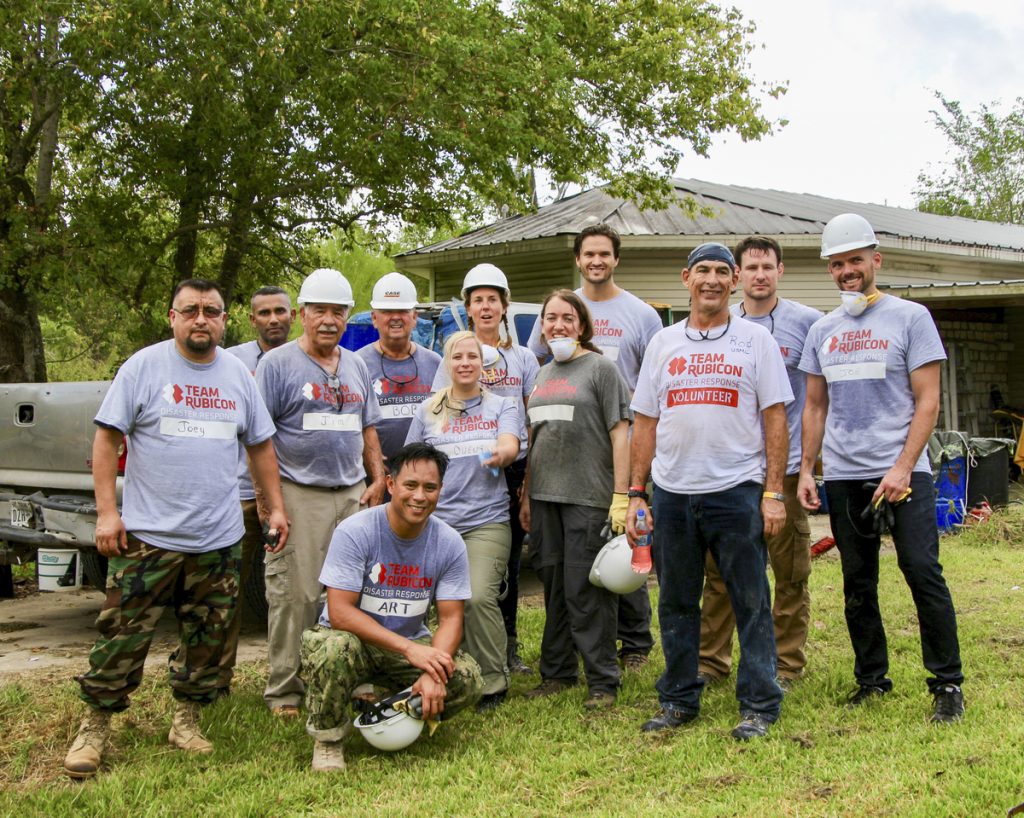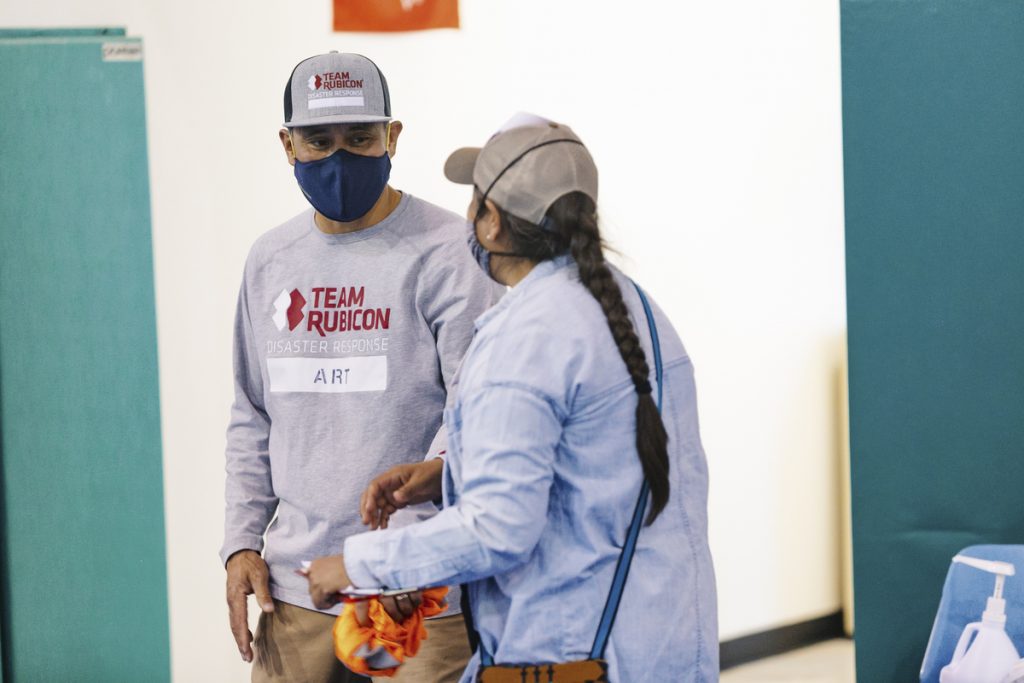To Succeed as CEO, Serve Those Who Serve
Committing to the kinds of Greyshirt experiences that have volunteers coming back for more promises a win-win.
Serving as the President and Chief Operating Officer of Team Rubicon over the past five years has been incredibly gratifying and rewarding. To watch our organization grow in volunteer numbers, services delivered, operationally, and in complexity reminds me on a daily basis that my role is a privilege and honor, and most importantly, a responsibility.
The opportunity to lead Team Rubicon as CEO is a continuation of that service and responsibility. The mission to grow our ability to act and deliver services to those most in need remains Team Rubicon’s north star. Like every Team Rubicon leader, I must serve our volunteers, volunteer leaders, full-time staff, and the incredible donors and investors who, in the wake of natural disasters or humanitarian crises, make it possible to deliver hope and needed services to people on their worst days. I envision what I do must enable each of them, so they can serve with an understanding that they accomplish the mission and help those in need.

The most common question I’ve been asked since becoming CEO has been “how does it feel to take over?” Thankfully, assuming the role of CEO feels familiar: I served in the U.S. Navy for 22 years in a broad range of leadership roles and eventually commanded a strike-fighter squadron of nearly 300 people that would call an aircraft carrier our home on two combat deployments. As the Commanding Officer, I had responsibilities to the men and women who served under me, to the Officers above me to whom I served, and to a nation I swore an oath to. We trained hard, took care of one another and each other’s families, and, when we deployed, relied on each other to perform our roles to ensure mission success. It was special and wonderful and provided an immense amount of pride each day, but especially on our eventual return home after months away. There was a special gratification in accomplishing our mission.
Now, as Team Rubicon’s new CEO, my responsibilities are to the volunteers who serve with us, the staff who make it possible for them to serve, and to the communities and individuals Team Rubicon is committed to helping recover from natural disasters and humanitarian crises. To do so also requires serving more than just individuals and survivors of disasters: I must also focus on serving those who serve—our Greyshirts. In doing so, we enable them to deliver the best possible experience to the survivors of disasters. It is the ultimate customer service, although for me the customer isn’t only the survivor of a disaster, it’s the men and women who help them recover.

In the world of a CEO of a nonprofit dedicated to serving people on their worst days, I believe our volunteers are also people deserving of a service. If Team Rubicon meets their needs—be it a seamless deployment or eliminating time-consuming bureaucracy—we better meet the needs of the communities we serve. When a volunteer shows up and has a fantastic experience—if they arrive at an operation and discover an organization in alignment with their personal goals and beliefs; if they show up and aren’t sitting around twiddling their thumbs or tasked with meaningless work; if they’re engaged and have a great experience—then I count that as a win. That’s because it’s a win for the organization, and it is guaranteed to serve the people we serve.
If Team Rubicon treats all our volunteers as valued “customers” then, like a valued customer, they’ll keep coming back for more of our “product.” And, when your product is to train, equip, and deploy people to be of service to others, giving and getting is a win-win.
Although the “product” might be slightly tweaked, when it comes to volunteer leaders serving them is much the same: Give them accountabilities;, opportunities for growth, and the tools associated with the leadership and management of complex projects that might be able to be put to use somewhere else—or, maybe give them the chance to use skills acquired in the military and the chance to flex those muscles again—and we set these volunteer leaders up not only for success but also to become the kind of product evangelists that make the Greyshirt experience better still.
If I’m thinking of customer service as success, how will I measure that success in this role, then? I’ll measure it not merely in the numbers of disaster survivors we serve, but in the experiences of the people who serve them. If our Greyshirts leave an op hungering to give more of themselves, and if every year our volunteer leaders become bigger evangelists for Team Rubicon, I’ll know we have succeeded. If I can do the same thing for the staff, investors, and donors, then we at Team Rubicon will generate not shareholder value or stock increases but more roofs overhead, more acres of debris happily cleared, more homeowner hugs delivered and blessings given. All because the better we serve our Greyshirts and our volunteer leaders, the better service, actions, and outcomes we’ll deliver to communities in need.

The beauty of Team Rubicon is this: our Greyshirts are all alike. They are selfless. They care about their communities. They believe in service above self. I know this because if it wasn’t they wouldn’t have assisted more than 9.7 million individuals, responded to 10 tornadoes or worked on nearly 1,000 hurricane-damaged homes in 2020 alone. They wouldn’t have surpassed 145 operations—including 45 core operations—already this year. They wouldn’t, right now, be wading through flooded basements in humid Detroit, stacking sandbags in the Arizona heat to forestall monsoon flooding in Gila County, or skirting powerlines in Dexter, MO, to get at trees uprooted by recent tornadoes.
With our volunteers, it’s not just about running the chainsaw, it’s about running the chainsaw for somebody.
For me, as Team Rubicon’s new CEO, it’s not about ensuring the chainsaws run smoothly, it’s about ensuring the sawyers have the kind of Greyshirt experience that makes more glitter fly, faster, farther, and harder for more disaster survivors.
Five years ago, right after I joined Team Rubicon as COO, and right on the heels of my first deployment as a Greyshirt on a post-flooding operation in Houston, TX, I penned a reflection, “Take a Little Time to Be Selfish…Go Help Somebody.” During that deployment our Greyshirts helped people who were force-fed a whole lotta “suck.” As in “this really sucks.” As in, “all of my belongings are under inches of mud and sludge,” sucks. And while we served these people, I, and the other Greyshirts I served with, experienced a completely different kind of “suck.” One that transformed me. It sucked, and in its own suck, it was awesome. Don’t get me wrong, seeing the suck in a survivor’s eyes is heartbreaking. But being in the muck and suck with fellow Greyshirts—being in the muck and suck together and coming out the other side with a lot of good work done; coming out the other side having, in some small way, made a survivor’s life a little easier—that was awesome.

That Team Rubicon made it possible for me to do that kind of sucky good work matters to me. That Team Rubicon made it possible for all of us to be efficient and effective in getting that good work done made it all the more meaningful.
That’s the kind of experience I, as CEO, am dedicating myself to in this new role. I’ll know I’ve succeeded if I’ve made it possible for more Greyshirts to get more … stuff … done. If I’ve put more Greyshirts in the suck, quickly and efficiently. If I’ve helped create the kind of experience that has them coming back for more, asking for more ways to serve more disaster survivors, more often, more quickly, more efficiently, I’ll count that as a success. If we continue building an organization where our most important cohort—our grey-shirted volunteers—feels like they get more out of ripping out soggy carpet or chopping down tilting trees or clearing acres of potential wildfire fuel than they give I’ll know I’ve succeeded as this organization’s new CEO. Make it easier for our Greyshirts to get in the suck; give more Greyshirts the ability to do something selfish and go help a stranger—that, for me, shall be the measure of success.
Art delaCruz
A retired U.S. Naval Officer, Art delaCruz is Team Rubicon's President and Chief Operating Officer and is responsible for Programs and Operations, Volunteers, Technology, Marketing and Communications, and developing and executing Team Rubicon’s strategy. Art served honorably in the U.S. Navy for more than 22 years, during which time he commanded a Navy strike-fighter squadron, served as a Topgun instructor, and made six combat deployments. After retiring, he spent two and a half years in the aerospace and defense sector in the roles of business development and strategy and planning, and one year with McKinsey & Co. as a Secretary of Defense Corporate Fellow.